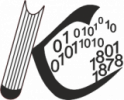Digitalization of the Repertoire of the Bulgarian Literature of the Revival (1801-1878)
Help
At the time of launch, the information retrieval system contains 2,050 bibliographic records. The system has options for queries in basic and advanced search mode. The results of each specific search can be further narrowed by a set of filters that cover all elements of the bibliographic description standard. In a basic search, keywords can be entered in three ways. When typing a keyword or phrase without restriction (free text), the system searches for all matches and prioritizes and sorts them according to the logic of the Elastic Search tool. The setting helps in the search for records containing morphemes, the spelling of which is not standardized in the Bulgarian Revival literary language – /tsarkovna, cherkovna; sviat, svet/ etc. The spelling of the proper names of the authors, translators and publishers is equated to the authoritative forms in the database and the names are as complete as possible. Basic search without delimiters is also suitable in cases where the user is not looking for something specific, but still wants to get acquainted with the widest number of records related to a topic, person, place name, etc. When searching for a keyword or phrase limited by “quotes”, the system gives an exact match to what the user has stated. In this situation, everyone must make sure that the entered application is written correctly and corresponds to a real book. The third type of basic search consists of a word root and an asterisk (*). It serves to find words with different suffixes and endings for gender, number, person and time (tsurk* = tsurkoven, tsurkovno, tsurkovna). Such an approach to the database allows us to find the maximum number of records on a specific topic or for a specific person.
Complex search consists of an unlimited number of search input fields, which can be added and deleted at the user‘s request via the “add filter” buttons and the “delete filter” field. Each typing field gives an option to select an element of the bibliographic description to search for: main title, parallel title, language of the parallel title, copyright, source of copyright, number of volumes, order of publication, place of publication, publisher, printing house, etc. The individual fields have a Boolean operator “and”, through which more elements can be added to the search. Through the complex search one can find a book by its reference number in the bibliographic directories of Balan [8], Pogorelov [9], Stoyanov [10] and Teodosiev’s catalog [11]. In the complex search, the field “year of issue / printing” is not provided, because it is designed as a separate dynamic button (scale) for filtering.
The results after the search can be used in the form of a list or visualized through a geographic information system. In list mode, the number of search and navigation results is displayed at the beginning of the list, which can be set to display 25, 50 and 100 results at the user‘s request. The results can be sorted by relevance, alphabetically, by author name or title, by year of publication or volume – ascending and descending. At the same time the filters: copyright, place of printing, language, etc. on the right side of the results provide bibliometric information that changes dynamically according to the results obtained. When visualized through GIS, the records are arranged by place of printing – a criterion that is extremely important for the geographically dynamic Bulgarian Revival book. In this mode, the system has options to zoom in and out on the map, which allows the scaling of the results [Report!].

